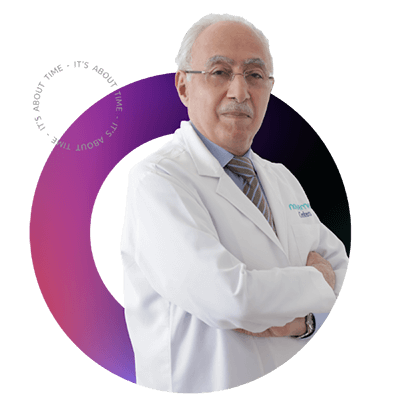Overview
Hearing loss can affect one or both ears temporarily or permanently and can be caused by various factors. Hearing loss can happen at any age, but it is most common among people over 60.
Getting the right treatment for your condition, depending on the causes and symptoms, will help improve your hearing, social interactions, and quality of life.
What are the symptoms of hearing loss?
The symptoms vary based on the type, cause, and severity of hearing loss. You may be experiencing hearing loss if you have difficulty hearing higher-pitched noises, keeping up with conversations, or understanding what is being said when there is background noise.
You may also be losing your hearing ability if you frequently have to ask people to repeat themselves and always turn up the volume on the television or radio. People with hearing loss also tend to hear ringing or buzzing sounds in their ears (a condition called tinnitus).
What are the types of hearing loss?
There are three main types of hearing loss:
Sensorineural hearing loss:
This type affects the inner ear and auditory nerve and usually happens to people who experienced birthing trauma or brain injuries. This type is usually permanent and irreversible, but treating it can help enhance your hearing ability.
Conductive hearing loss:
This type occurs when sound waves cannot reach the inner ear and are usually reversible with medical treatment or surgery. It is caused by a mechanical problem in the outer or middle ear or an obstruction in the ear canal, such as an ear infection or earwax buildup.
Mixed hearing loss:
Some patients suffer a hearing loss that is both conductive and sensorineural. Mixed hearing loss can be caused by a head injury, infection, or a genetic disorder.
What are the causes of hearing loss?
The most common causes of hearing loss include:
- Aging and loud noise exposure: The hairs or nerve cells in the inner ear that convey sound impulses to the brain may wear out with age and loud noise exposure.
- Earwax or fluid buildup: Earwax can obstruct the ear canal and prevent sound waves from being transmitted.
- Perforated eardrum: Your eardrum can be injured as a result of an infection, pressure, or inserting things in the ear.
- Health disorders, such as diabetes or high blood pressure can exacerbate hearing loss.
- Viruses and bacteria can affect your hearing.
- Having a family history of hearing loss.
- Medications known as “ototoxic” can cause irreversible harm to the inner ear.
How is hearing loss treated?
The type of treatment you receive is determined by the cause and severity of your hearing loss.
Hearing loss treatment options include:
- Getting rid of accumulated wax. This may be beneficial if your condition is caused by earwax blockage. Suction or a little tool with a loop at its end may be used to remove earwax and restore your hearing.
- Surgery. Some types of hearing loss, such as the ones caused by anomalies of the eardrum or hearing bones, can be corrected with surgery. Our ENT surgeon will place tiny tubes to help your ears drain if you’ve had repeated infections with persistent fluid.
- Hearing aids are controlled hearing devices that increase sound volume and guide it into the ear canal. They can help you hear better if your hearing loss is caused by injury to your inner ear. Our doctor will demonstrate how to use it and show you the different fit and features available.
- Cochlear implants are electronic devices that bypass non-functioning inner ear portions and stimulate the hearing nerve directly. These devices can be used if you have severe hearing loss and find that hearing aids are ineffective.
To prevent hearing loss from worsening or slow its progression, you should limit the duration and intensity of noise exposure and wear hearing protection, such as noise-canceling headphones. You should also schedule follow-up appointments to get frequent hearing examinations.
Schedule your appointment at Novomed today!
If you are experiencing hearing loss, make an appointment with one of our expert ENT doctors to learn more about your condition and treatment options.
Book your consultation today by calling toll-free 8006686 or clicking the live chat icon at the bottom of the screen.


























